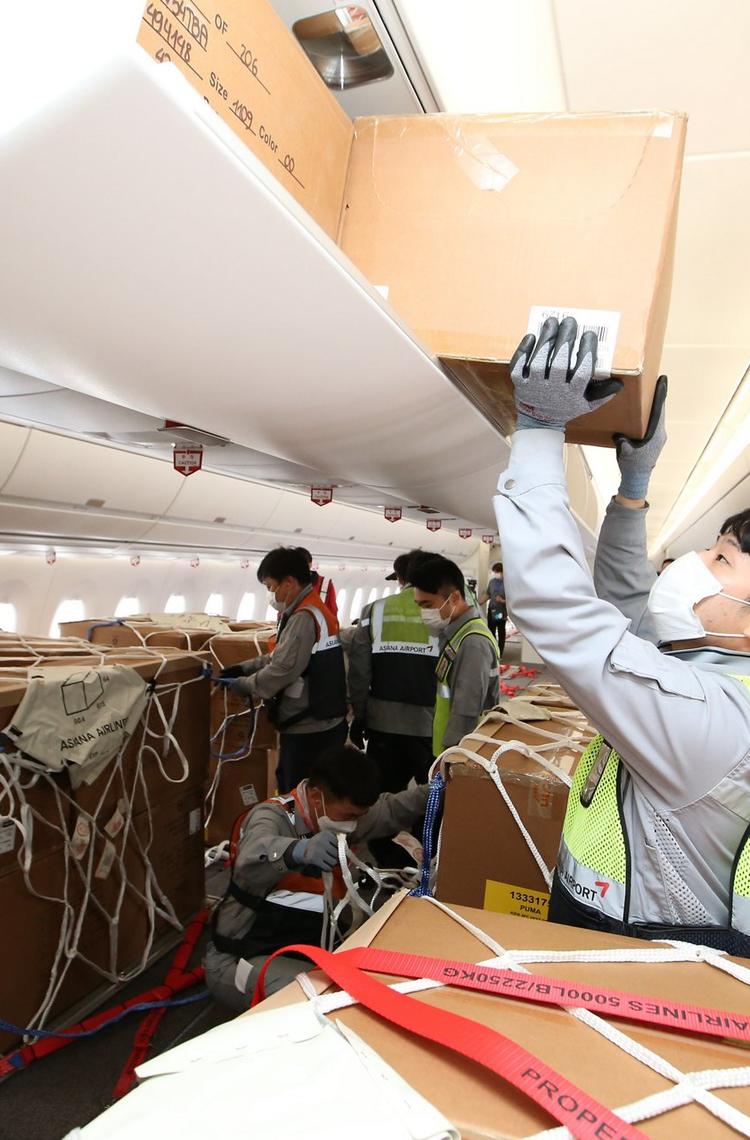South Korea’s Asiana Airlines has become the world’s first airline to embody the Airbus solution to convert an A350 passenger cabin to carry freight. This solution, packaged as an Airbus Service Bulletin (SB) no. SB 25-P170, was developed in close cooperation between Airbus, European Union Aviation Safety Agency (EASA) and Asiana.
The modified A350 was put into service in the last week of September flying the Seoul-Los Angeles route, transporting IT and electronic equipment, as well as e-commerce exports such as clothing.
From October, the aircraft will service additional high-demand routes including Seoul-Ho Chi Minh. The project required the replacement of 283 economy seats with cargo pallets on the cabin floor to firmly secure cargo loads. The two-week modification increases the aircraft’s cargo capacity by five additional metric tonnes to 23 tonnes. Amidst the global impact of COVID-19 on the aviation industry, Asiana is pursuing an active response towards utilising the cargo carrying capabilities of its passenger airliner fleet to expand its cargo capacity.
We took the decision for aircraft modification after a close review of its capability to secure safety and increase profitability. Cargo sales have become a big part of the airline’s business during the COVID-19 situation, and we will carry out various efforts for the segment
Kim Kwang-seok, Senior Executive Vice President of Cargo Business at Asiana
Since the onset of COVID-19 earlier in the year, EASA issued exemption guidelines to airlines for the transportation of medical and urgent cargo. Airbus then worked with EASA to develop a SB for the modification of passenger aircraft, which Asiana adopted. Once the SB was granted, the Airbus field service team in South Korea helped to facilitate discussions between the Airbus’ Flight Ops Support team in Singapore, together with its Flight Ops Support and Engineering Support teams based in Toulouse.
Compared with loading cargo onto seats, the Airbus SB solution – announced in April this year – facilitates easier and quicker loading and unloading operations, as well as reduced ‘wear & tear’ to the seats themselves. Other important benefits for airlines include the added security of robust fire protection, and the 9g load restraint capability to prevent anything from shifting in flight. Its scope includes the removal of the seats & IFE (Inflight entertainment), installation of cargo pallets and associated safety equipment – and also the re-installation of the original passenger cabin elements for reverting back to passenger operations. The SB approach will also be valid beyond the COVID-19 pandemic.
We congratulate Asiana Airlines on becoming the first operator to convert an A350 using Airbus’ solution. During these challenging times we are heartened to see our airline partners move nimbly to address their needs. Airbus remains committed to support our airline partners by providing solutions to their new needs
Anand Stanley, Airbus’ Head of Region, Asia-Pacific

